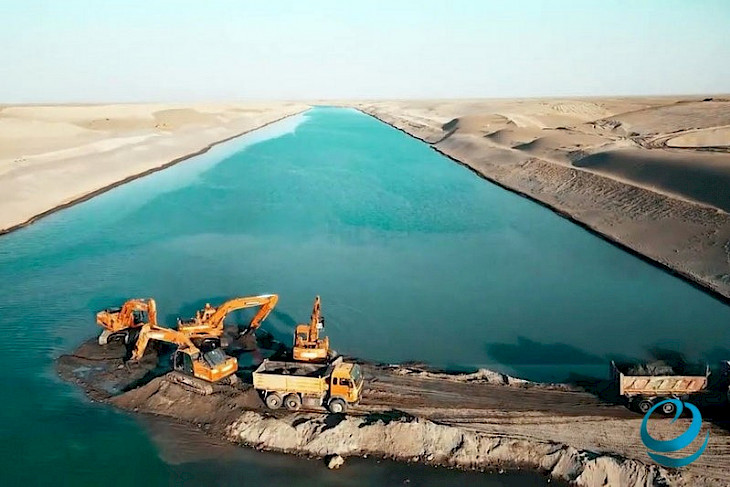The Kosh-Tepe Canal, which the Taliban government in Afghanistan is constructing, is causing much controversy. Some environmentalists argue that it could lead to further drying up of the Aral Sea, while others are raising alarms because Afghanistan is not coordinating its actions with other Central Asian countries, although geographically it is part of the region.
The problem is that Afghanistan has not signed any regional-level water management documents. Is it possible to resolve this issue?
An answer to this question was attempted by the well-known Russian Orientalist Alexander Knyazev on the "Around Uzbekistan" channel, reports Eurasia Today.
There is an Interstate Water Management Commission, which is a body for jointly addressing issues of management, rational use, and protection of water resources from interstate sources in the Aral Sea basin, says Knyazev.
"The issue of the construction of the Kosh-Tepe Canal in Afghanistan became relevant in the spring of 2022, when the construction actually began. Every spring, this commission determines water intake quotas in the Amu Darya and Syr Darya basins for the next growing season.
However, for the past three years, Afghanistan has not participated in this process, despite the fact that the share of runoff from the Amu Darya into the territory of Afghanistan is many times greater than the shares that Uzbekistan and Turkmenistan have (Tajikistan forms the largest share of runoff).
There are no figures for this year, but in general, water intake from the Amu Darya basin is about 56 billion cubic meters, of which about 40 billion cubic meters of water falls between April and October. In past years, Tajikistan received just over 6.9 billion cubic meters of water during this period, Uzbekistan - 16 billion, Turkmenistan - 15.5 billion," Knyazev explained.
He notes that three years have passed since the beginning of the canal's construction. During this time, it was possible and necessary to include Afghanistan among the participants in the interstate agreement on which the mentioned commission operates, to determine Afghanistan's quota. This is not being done; the countries of the region find it convenient, as they have always done, to satisfy their needs while distancing themselves from Afghanistan.
"This distance is dictated by both simple self-interest and political considerations: the notorious non-recognition of the Taliban government. Notorious because in the international legal field there is no such concept as the recognition of governments.
Are there diplomatic relations with the country? Is there any interaction with the current government based on the interests of the parties? If these two facts exist, that is recognition; everything else is misleading," the expert believes.
In his opinion, the issue of water intake by Afghanistan can be resolved only by including it as an equal participant in the interstate legal framework and the institution operating on its basis.
The construction of the Kosh-Tepe Canal only partially exacerbates the rapidly growing water resource deficit in Central Asia. This problem cannot be solved by, say, the Afghan side abandoning the canal's construction.
"A large regional program on water conservation and resource efficiency is needed, in which Afghanistan must participate, of course. And we need to work with the Afghan government that exists and is here to stay, which is already a quite obvious reality that should not be ignored.
One may like or dislike the Taliban, but elementary geography (including the factor of water use) dictates the need to work with them. Uzbekistan is doing something in this direction and, in my opinion, better than other countries in the region, but it is not enough," concluded Knyazev.
CentralasianLIGHT.org
July 8, 2024

